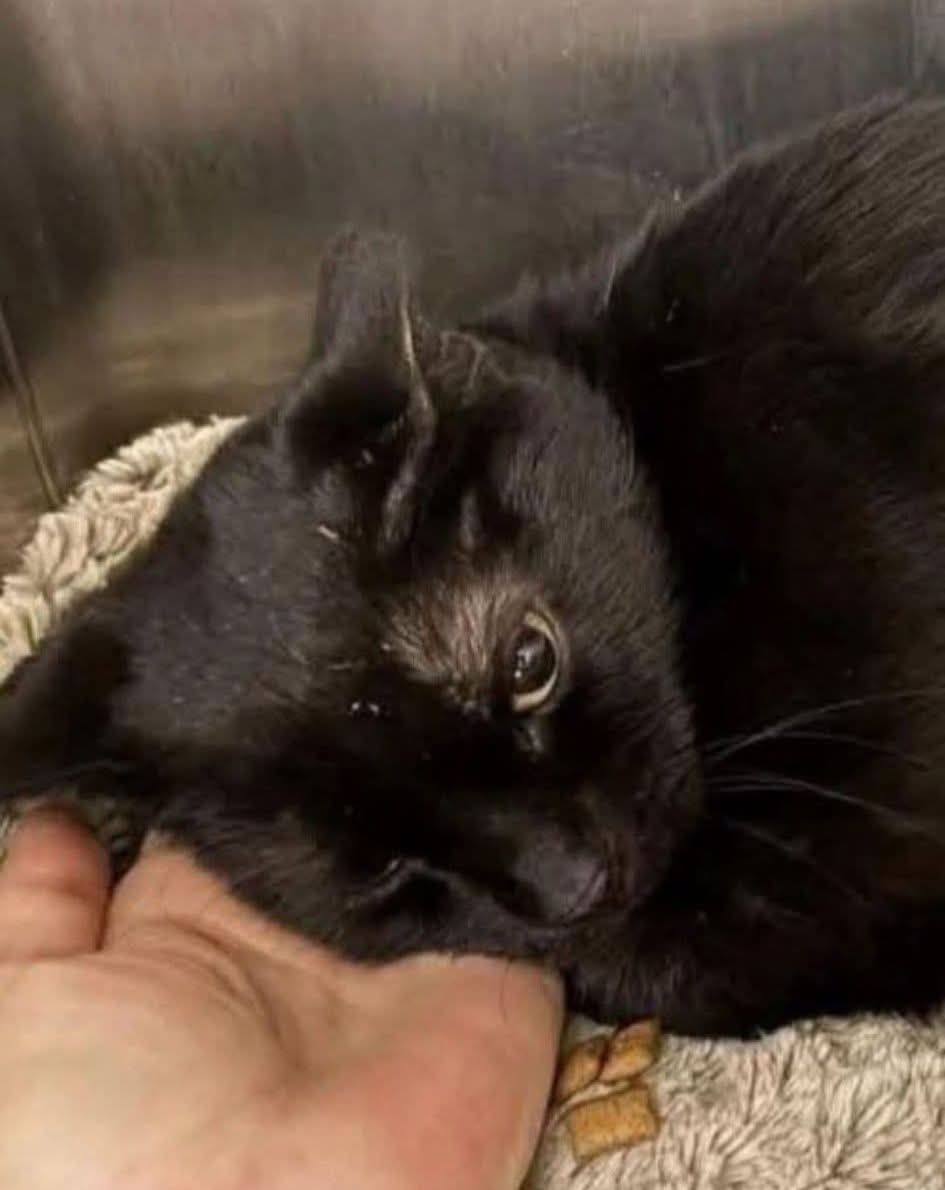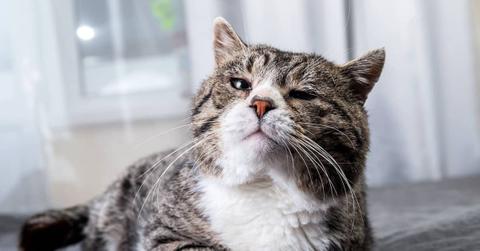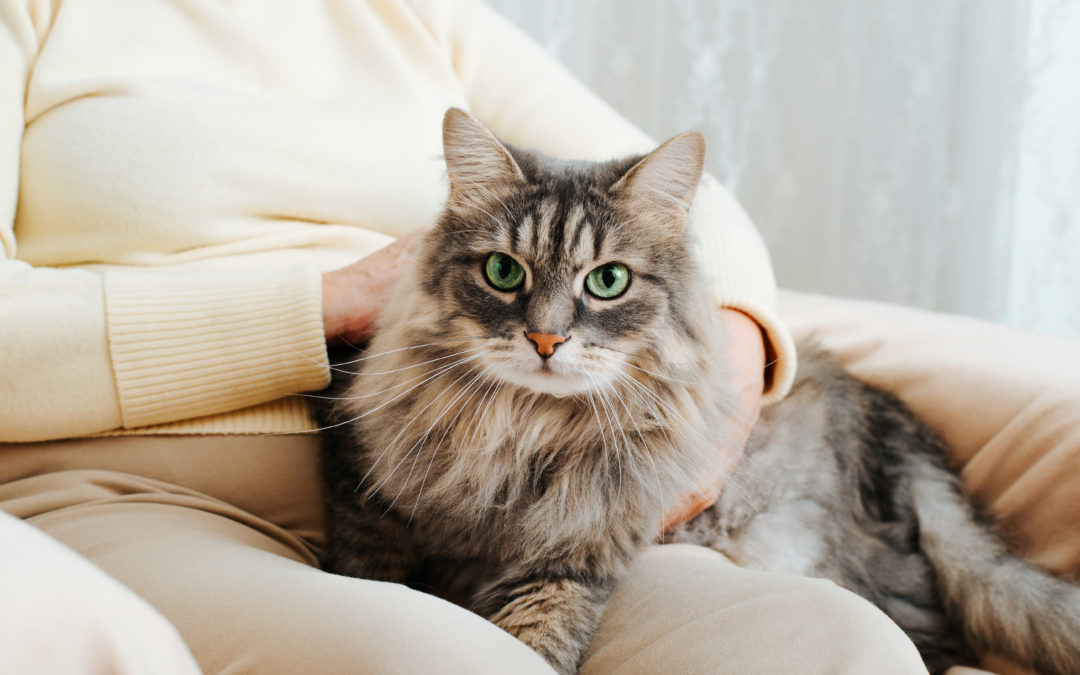Adopting a Depressed Senior Cat and Giving Her a New Beginning

When Love Finds a Corner
In a quiet room of a busy animal shelter, an 8-year-old cat sat curled in a corner, her eyes shut tightly to block out the world. She had lived her whole life with one family—since kittenhood—but due to circumstances beyond her control, she found herself alone in a strange place that smelled of fear, disinfectant, and loss. For nearly a month, she stayed in that corner, unmoving and untouchable. Her body was healthy, but her spirit was bruised.
Until one day, she was seen—not just as another forgotten face behind bars—but as someone in need of love and understanding. That day marked a new beginning.
This is the story of how adopting a depressed senior cat changed not just her life, but the lives of the people who chose to bring her home.
Why Adopt a Senior Cat?
When people visit shelters looking for pets, many are drawn to the energy and charm of kittens. They’re lively, curious, and full of promise. But senior cats often sit unnoticed, overlooked for being too old, too quiet, or “less adoptable.” Yet, for many families, a senior cat can be the perfect companion.
Senior cats are often litter-trained, calmer, and less destructive than kittens. They’ve developed personalities, making it easier to find one whose temperament fits your lifestyle. Most importantly, they’re capable of forming deep, trusting bonds with humans who give them a second chance.
Adopting a senior cat is an act of compassion. It acknowledges that all animals—regardless of age—deserve love and a place to call home.

From Shelter Sadness to Home Sanctuary
When we first saw her shelter post, her story broke our hearts. An 8-year-old cat, surrendered by the only family she had ever known, was now shutting the world out. Her emotional wounds were invisible but deep. We knew we couldn’t replace the life she once had, but we could give her something she desperately needed: another chance.
After our 16-year-old cat passed away last summer, we hadn’t been ready to open our hearts again. But time softened that pain and left room for something new. Something healing.
When we brought her home, we set her up in a quiet, cozy room. Her food, water, litter box, and a soft bed were all placed nearby. Still, she didn’t emerge. She found the smallest space—under a dresser—and tucked herself in. And that’s where she stayed. Not hissing, not growling. Just… hiding.
Understanding Feline Depression
Just like humans, cats can experience depression. Major changes—such as losing a long-time owner or being relocated to a shelter—can trigger withdrawal, loss of appetite, lethargy, and even self-neglect. These behaviors are not defiance or stubbornness. They are expressions of grief, confusion, and fear.
For senior cats, the loss of routine can be especially jarring. They may grieve the absence of familiar voices, sleeping spots, and smells. Without those comforts, some cats retreat inward, becoming shadows of themselves.
What these cats need is time, patience, and an environment that allows them to feel safe. Recovery isn’t overnight, but it is absolutely possible.
The First Steps of Trust
We didn’t push her. We didn’t try to coax her out with toys or reach under the dresser to pet her. Instead, we just spent time in the room—reading, talking softly, sitting quietly. We left treats near her hiding spot, replaced her water, and gently refreshed her litter box.
Each day, we let her know we were present but not demanding.
After a few days, we noticed small changes: a bowl slightly less full, a toy moved a few inches, a faint meow in the night. Signs of life. Signs of curiosity. Tiny victories.

Creating a Safe Environment
Here are some steps we found useful for helping our cat begin to heal:
-
Start Small: A single, quiet room with minimal foot traffic is ideal. Avoid loud noises and sudden movements.
-
Provide Hiding Spots: Cats feel safer when they have a secure place to retreat. Under the dresser became her safe zone.
-
Consistent Routine: Feed at the same time every day. Clean the litter box regularly. Routine helps build predictability and trust.
-
Speak Gently: Soft tones and slow blinking help cats feel calm. Avoid eye contact initially, as it can be seen as a threat.
-
Use Calming Tools Cautiously: We tried Feliway diffusers, but didn’t find much success. That said, every cat reacts differently. Other calming aids, like Composure chews, Zylkene capsules, or VetriScience treats may be more effective.
-
Incorporate Scent: Leave a t-shirt or blanket with your scent in the room. It helps the cat associate your smell with safety.
Suggested Calming Products (Beyond Feliway)
If you’re also helping a nervous or depressed cat, here are some alternative options to explore:
-
Composure by VetriScience – Tasty chews with L-theanine and colostrum to reduce stress without sedation.
-
Zylkene – Made from a milk protein that has calming effects on cats and dogs.
-
Jackson Galaxy Solutions (Spirit Essences) – Holistic remedy drops formulated to address emotional and behavioral issues.
-
Calm Paws Calming Collars – Infused with essential oils like lavender and chamomile.
-
Thundershirt for Cats – Wraps the body in gentle pressure, similar to swaddling a baby.
Always check with a vet before trying new supplements, especially if your cat has pre-existing conditions.

The Healing Power of Time
Weeks may go by before a cat like this begins to blossom. Healing is not linear. One day she may come out and explore; the next she may return to hiding. That’s okay. What matters is that she is no longer alone. She is loved, even when she hides.
And sometimes, love means simply being there, waiting patiently without expectations.
Name Ideas: Honoring Her Spirit
Naming a cat is a beautiful step in making her part of your family. Since your girl has a story of quiet resilience and hidden strength, here are some name ideas that celebrate her:
-
Hope – Because that’s what she’s holding onto.
-
Shadow – A nod to her hiding place, and her soft, mysterious presence.
-
Luna – Calm, gentle, and quietly glowing.
-
Willow – Graceful, rooted, and strong even in sadness.
-
Nova – A star reborn after darkness.
-
Misty – Soft, elusive, and beautiful.
-
Sage – For wisdom and serenity.
-
Clover – A symbol of luck and new beginnings.
-
Elsa – As in “let it go”—a fresh chapter.
-
Juniper – Unique, subtle, and a little magical.
Choose one that fits her personality once she starts revealing it. It’s okay to wait until she “tells” you her name.
The Joy of Earning Her Trust
When a shy or emotionally wounded cat begins to show affection, it is among the most rewarding experiences. Unlike kittens who are open books, these cats don’t give their hearts easily. But once they do, it’s for life.
The first time she rubbed against your leg, the first purr, the first eye contact—it all means something. It means she chose you.
Every tiny milestone is sacred. Don’t rush the journey.
A New Chapter for Everyone
Adopting a senior cat, especially one with emotional trauma, is an act of love that requires patience, understanding, and humility. But the rewards are profound.
She may have started in a corner with her eyes closed, wishing the world away. But now, she has something she didn’t have before: a second chance. A real home. A quiet room filled with hope. Humans who care deeply. And the freedom to heal on her own terms.
In return, she may just give you the kind of companionship that only comes from a cat who has known both sorrow and salvation.
To everyone considering a senior or shy shelter cat—know that you’re not just giving them a home. You’re giving them a reason to believe again.












